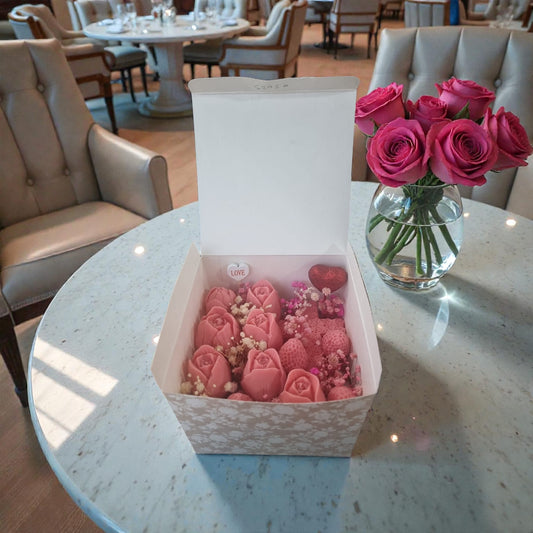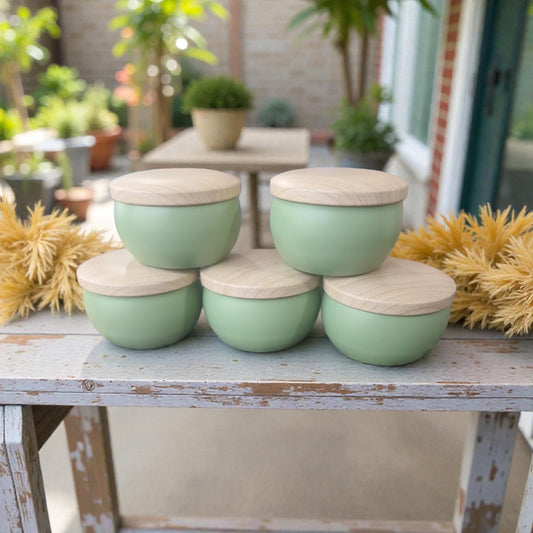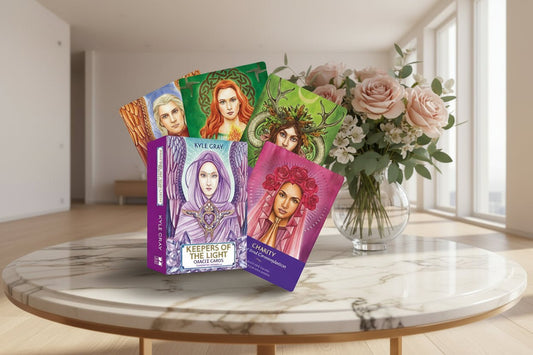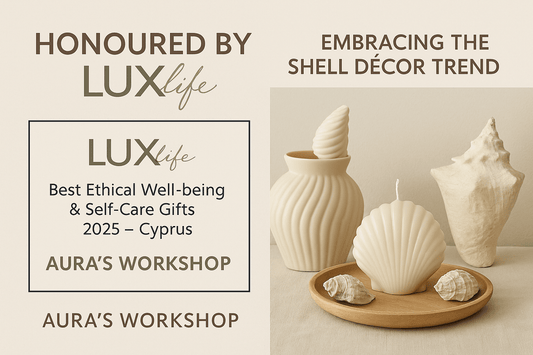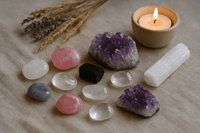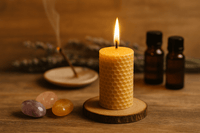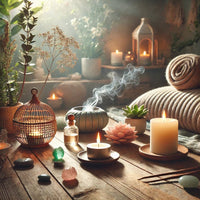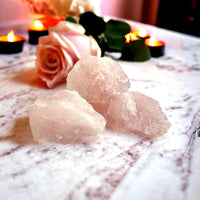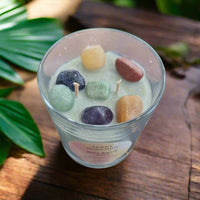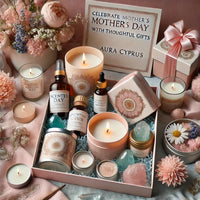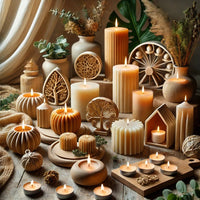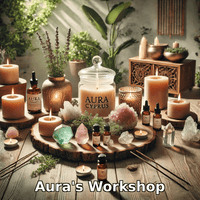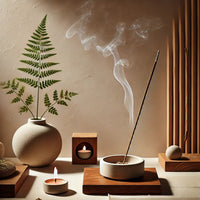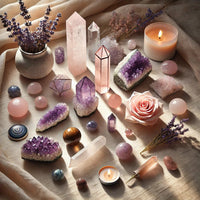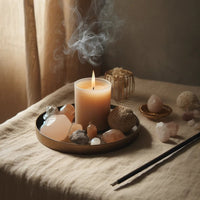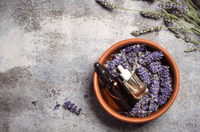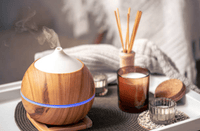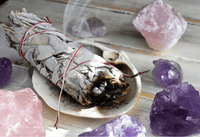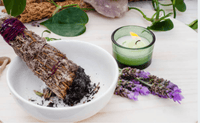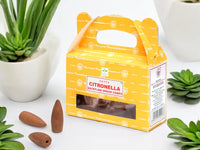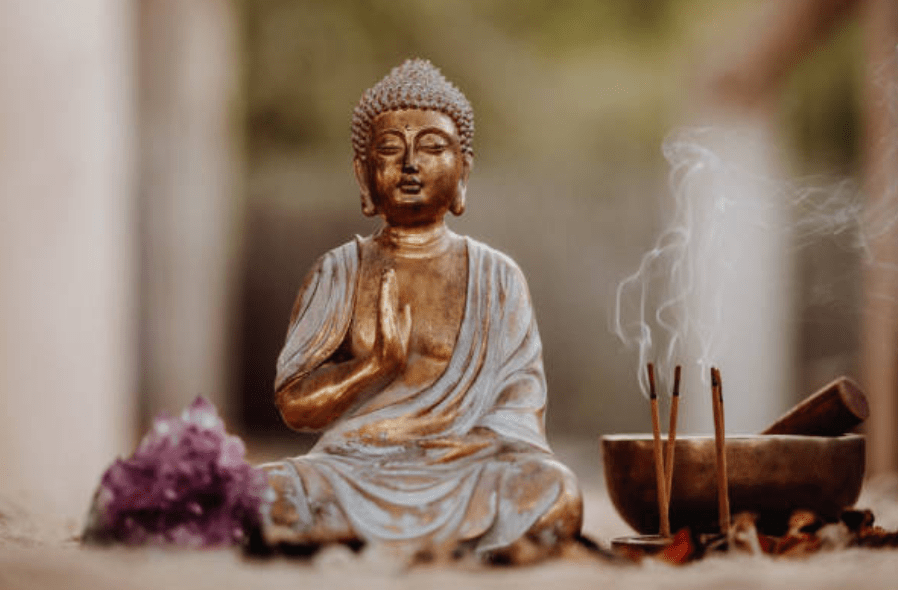
Incense: Aromatic Pathways to Relaxation and Spirituality
Discover the benefits, types, and uses of incense. Learn how to choose, use, and buy incense for relaxation, meditation, and spiritual practices.
Incense has been a part of human culture for thousands of years, valued for its aromatic properties and its role in spiritual and religious practices. Whether used for relaxation, meditation, or simply to create a pleasant atmosphere, incense offers a variety of benefits. In this guide, we'll explore what incense is, its history, types, benefits, and how to incorporate it into your life. For high-quality incense, visit Aura's Workshop in Cyprus.
What is Incense?
Incense is a substance that releases fragrant smoke when burned. It is typically made from aromatic plant materials combined with essential oils. Incense comes in various forms, including sticks, cones, resins, and powders, each offering a unique burning experience and aroma.
History of Incense
The use of incense dates back to ancient civilizations. The Egyptians used incense in religious rituals, while the Chinese and Indians utilized it for spiritual and medicinal purposes. In many cultures, incense was believed to purify the air, ward off evil spirits, and please the gods. Today, incense continues to play a significant role in various religious and cultural practices around the world.
Benefits of Incense
Incense offers numerous benefits, including:
- Aromatherapy: The fragrant smoke can help to relax the mind, reduce stress, and promote a sense of well-being.
- Spiritual Use: Incense is often used in meditation, prayer, and religious ceremonies to create a sacred atmosphere.
- Practical Uses: Incense can mask unpleasant odors and create a welcoming environment in homes and spaces.
Types of Incense
There are several types of incense, each with its unique characteristics:
- Sticks: The most common form, easy to use and widely available.
- Cones: Burned on a heat-resistant surface, offering a different burn experience.
- Resins: Typically burned on charcoal, providing a rich, intense aroma.
- Powders: Can be sprinkled over charcoal or heated in an incense burner.
Popular Incense Scents
Incense comes in a wide range of scents, each offering different benefits:
- Lavender: Known for its calming and relaxing properties.
- Sandalwood: Often used in meditation and spiritual practices.
- Frankincense: Traditionally used in religious ceremonies for its purifying properties.
- Cedarwood: Provides a grounding and calming effect.
- Jasmine: Known for its sweet and uplifting aroma.
How to Use Incense
Burning incense is straightforward, but it's important to do so safely:
- Choose a Suitable Holder: Use an incense holder that is stable and heat-resistant.
- Light the Incense: Hold the tip of the incense stick or cone over a flame until it glows red, then blow out the flame.
- Let it Burn: Allow the incense to smolder and release its fragrance. Ensure it is placed on a non-flammable surface.
Incense for Meditation
Incorporating incense into meditation can enhance the experience by creating a calming and focused atmosphere. Scents like sandalwood, frankincense, and lavender are popular choices for their relaxing and grounding properties. Light the incense before beginning your meditation to establish a serene environment.
Incense in Different Cultures
Incense holds significant cultural and religious importance in various traditions:
- Buddhism: Used in temples and homes for offerings and meditation.
- Hinduism: Integral to rituals and ceremonies, often associated with specific deities.
- Christianity: Used in church services, especially in Eastern Orthodox and Catholic traditions.
- Shamanism: Employed in rituals to cleanse spaces and invoke spirits.
Choosing the Right Incense
Selecting the right incense depends on your personal preferences and intended use. Consider factors such as the scent, quality of ingredients, and the purpose of burning the incense. For high-quality options, visit Aura's Workshop in Cyprus.
Making Your Own Incense
Creating your own incense can be a rewarding experience. Here’s a simple guide:
- Gather Ingredients: Choose aromatic herbs, resins, and essential oils.
- Grind and Mix: Combine the ingredients in a mortar and pestle.
- Form: Shape the mixture into sticks, cones, or loose powder.
- Dry: Allow the incense to dry completely before use.
Buying Incense Online
Purchasing incense online offers a wide selection and convenience. Follow these tips to ensure a positive shopping experience:
- Read Reviews: Look for products with positive customer feedback.
- Check Ingredients: Ensure the incense is made from natural, high-quality ingredients.
- Verify Authenticity: Buy from reputable sellers to avoid counterfeit products.
For a reliable online shopping experience, visit Aura's Workshop in Cyprus.
Incense and Feng Shui
In Feng Shui, incense is used to cleanse and energize spaces. Specific scents can enhance different areas of your home:
- Lavender: Ideal for the bedroom to promote relaxation.
- Sandalwood: Suitable for meditation spaces to enhance spiritual energy.
- Citrus: Great for the kitchen to uplift and energize.
Health Considerations
While incense offers many benefits, it's important to use it mindfully:
- Ventilation: Ensure good airflow in the room to avoid smoke buildup.
- Quality: Choose incense made from natural ingredients to reduce exposure to harmful chemicals.
- Moderation: Use incense in moderation to minimize potential respiratory issues.
Sustainable Incense Options
Eco-friendly incense is made from sustainable and ethically sourced ingredients. Look for brands that prioritize environmental responsibility and use natural, biodegradable materials.
Incense as Gifts
Incense makes a thoughtful and meaningful gift. Consider pairing it with a beautiful holder or a selection of different scents. Personalized gift sets are also available at Aura's Workshop in Cyprus.
Incense Holders and Accessories
Choosing the right incense holder is essential for safe and enjoyable use. Options include:
- Wooden Holders: Classic and simple, suitable for sticks.
- Ceramic Holders: Heat-resistant and often decorative, good for cones and sticks.
- Charcoal Burners: Ideal for burning resins and powders.
FAQs About Incense
What is the best way to light incense? Hold the tip over a flame until it glows red, then blow out the flame and let it smolder.
Can incense be harmful? When used in moderation and with proper ventilation, natural incense is generally safe. Avoid products with synthetic ingredients.
How long does incense last? Burn time varies by type; sticks typically last 30-60 minutes, while cones may burn for 10-20 minutes.
Is it okay to burn incense every day? Yes, as long as you ensure good ventilation and choose high-quality, natural products.
What are some popular incense scents for relaxation? Lavender, sandalwood, and chamomile are excellent choices for relaxation.
Can I make my own incense at home? Yes, with the right ingredients and tools, you can create personalized incense blends.
Conclusion
Incense offers a rich and aromatic addition to any space, providing benefits ranging from relaxation to spiritual enhancement. Whether you choose to buy or make your own, the right incense can create a soothing and welcoming environment. Explore our selection of high-quality incense at Aura's Workshop in Cyprus and discover the perfect scent for your needs.
Shop now and spread the love with our curated products for your home: https://auracyprus.com






